COME HEAR THE MUSIC PLAY:
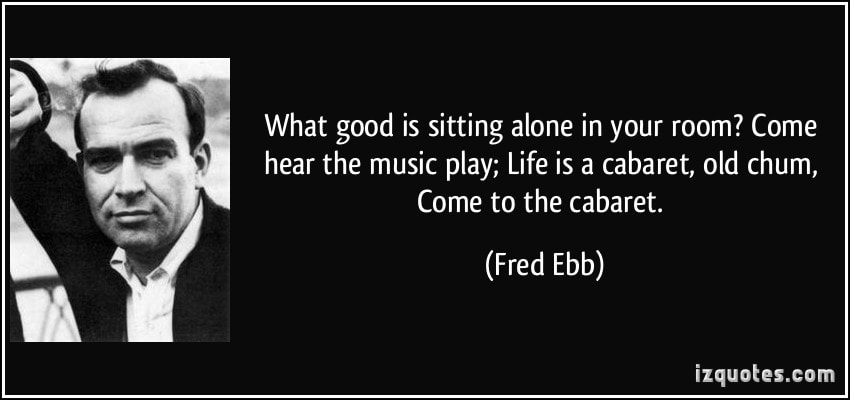
Memories of My Twenty Years as Agent For John Kander by Richard Seff
OVERTURE.
John Kander and Fred Ebb have written some fifteen musicals for Broadway as well as an Industrial Show for General Electric, and their musical material was staged in revue form off-Broadway by others twice. Three of their fifteen Broadway properties were completed and produced after Ebb’s death in 2004, and one (based on Thornton Wilder’s play The Skin of our Teeth) expired during a tryout tour in stock in 1999.
Kander and Ebb hold the record as the longest running composer/lyricist collaboration in musical theatre history. In theater they worked together for 40 years, beginning in 1964 and continuing until Ebb’s death in 2004. At the time of Ebb’s death, their three almost completed musicals, Curtains, The Scottsboro Boys and The Visit, were completed by Kander and the occasional added lyricist, and all three shows found homes on Broadway.
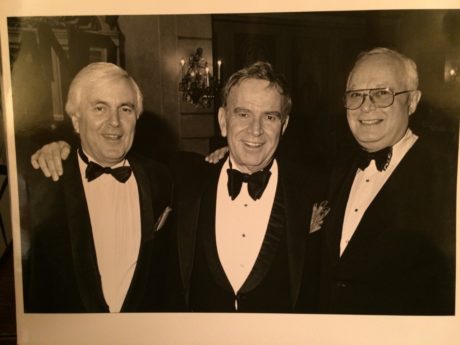
PROLOGUE.
Both men were writing songs for the musical theatre long before they became collaborators. Now, to honor John Kander’s imminent 90th birthday on March 18th, I’d like to share with you some of the personal memories of my long association behind the scenes with them, before they began to write together, even before they met.
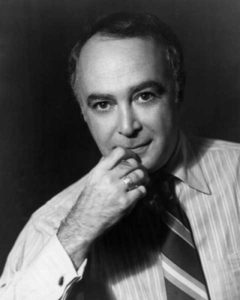
Our business relationship began during my 20-year career as a musical theatre agent during which I represented them. For almost ten of those years, from the mid-1950s to the early 1960s, they worked alone and with other writing partners.
Kander, an Oberlin graduate, completed his formal training with postgraduate work at Columbia University. Done with that, he made his living accompanying singers at auditions, conducting (Conversation Piece by Noël Coward), and arranging dance music for other composers (Irma La Douce, Gypsy). But Broadway was the goal.
Without obtaining rights to the source material, he and two collaborators (James and William Goldman) did an audition of some songs he had composed on spec for Jean Giraudoux’s The Enchanted, as adapted by Maurice Valency. The audition was for the agents who controlled those musical theatre rights. At the time (1955) I was a young agent and I was invited to that audition by my boss, who ran the MCA Agency’s musical theatre department. I had no voice at that meeting; I was there just to listen and learn. And how fortunate for me that I was included, as you will see.
After the audition those in charge felt the music was promising, but what little of the book that was performed was, in their opinions, “not up to Valency and Giraudoux”, and the rights were not granted. But as the one with no voice in the room, I left with the others, then returned on some pretext or other to ask them if I could represent them as agent should they ever try again with another musical. Thus that became a seminal day in my professional life.
THE HOUSE LIGHTS DIM.
To make expenses after that first attempt at a breakthrough, one of John Kander’s rent-paying jobs was arranging dance music for Gypsy, and his work was recognized by its director Jerome Robbins, which would become useful a year later when he and the Goldman brothers completed their first musical, A Family Affair. This time they took no chances on being denied rights to source material; they wrote an original. They remembered I had asked to represent them and they offered the musical to me — I was by then looking after several performers and other artists, but these were my first theatrical writer clients and I was thrilled when Jerome Robbins showed interest in directing their musical.
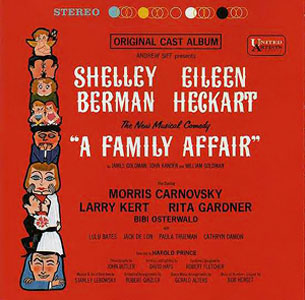
That interest caused Leland Hayward, a top tier producer, to option it for Broadway and all of us newcomers were flying high. In the year that followed, the only contact we had with Mr. Hayward were the two lunches he arranged with the four of us. Our bubble burst when Robbins decided to take on the direction of Fiddler on the Roof instead. There were no more lunches, no more option, so the property reverted to the authors. It was now up to me, the baby agent, to come up with a producer.
My cousin Andrew was a young theatrical attorney who had had some success forming a small group of investors who had taken shares in several Broadway hits, and he agreed to produce the show. Backers’ auditions, (populated mostly by aunts, uncles, cousins and very close friends, done inexpensively as possible with John Kander, Bill Goldman, and me (!) singing badly (James Goldman could not carry a tune, so he lent support from the audience) took another year, until late 1961, when it went into rehearsal and went out of town for a Philadelphia tryout. There, the director was replaced, and several name directors declined to replace him.
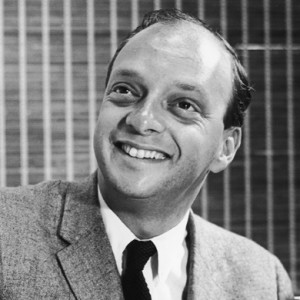
I timidly suggested big name producer Hal Prince for the job, having seen and liked a touring version of The Matchmaker he’d directed the season before. Luckily he’d been anxious to direct again, and he accepted. In the two weeks left to him before we had to open or go broke, he accomplished a lot under impossible circumstances. He simplified the set, he threw out costumes and replaced them with store-bought items that seemed more appropriate. The co-star Eileen Heckart decided to exercise her “out” clause when salaries had to be cut, and she was replaced by a very game Carol Bruce for the later New York previews. A Family Affair opened on Broadway on January 27, 1962; it struggled for nine weeks, but never made the grade at the box office. As Walter Kerr wrote in his New York review, it was “A most appealing almost”. But a connection had been made between Messrs. Prince and Kander, which would bear fruit. Synergy at work in the theatrical community once again.
Fred Ebb was born in 1929 but he never admitted it, so none of us ever knew how old he was. He scratched out a modest living, managing to have a handful of songs recorded by early 1950s recording artists, and by holding a variety of odd jobs. But after working for an uncle selling lamps, he determined to concentrate on theatre lyrics, and found a writing partner in Paul Klein, with whom he wrote three complete musicals before he met John Kander. I first heard Fred’s work when he and Paul Klein auditioned for me in our little cubicle of a piano room at MCA. I found their work refreshing and they joined me as early writing clients Ebb and Klein. Out of their collaboration came three musicals, Simon Says, It Gives Me Great Pleasure and one based on a prize-winning short story, Morning Sun, which the Phoenix Theatre (thriving at the time on lower Second Avenue in its own theatre) produced. Not typical Ebb material, this dark tale of a hanging in the south didn’t work. But he’d been launched. Like John with A Family Affair, he’d had a show produced in New York.
Though Ebb and Kander had each heard of the other, they’d never met. When Paul Klein decided he needed a more stable working life, and the Goldman brothers went their own ways to write novels, plays and films, “timing is everything” proved true. As I still represented them both, I took Fred to see A Family Affair during a rainy Wednesday matinée in 1962 when its theatre was half empty, and when the bows were over I asked him: “Well? You need a composer; John needs a lyricist. What do you say?” He looked at me, took his time. And his answer, without equivocation was: “Yeah, I could work with him.”
Tommy Valando was that rare music publisher who favored the new Broadway writers, and he, who had them both under contract with their first partners, introduced them to each other when they became available.
In the light of what Kander and Ebb accomplished in the next forty years I’ve always equated Fred’s six words to me with “Dr. Livingstone, I presume”, spoken when Henry Stanley finally found the man he’d been searching for in Africa. Now it’s fifty five years later and I’m so glad John and I both stuck around long enough for me to take you with me on a journey through his incredible body of work with Fred Ebb, his recent accomplishments with his new collaborator Greg Pierce, and some of the fun times we had as agent, client and friends that gave me so much joy. In 1975, twenty years after our start, I left my agency career to pursue other interests, but I treasure our time together and I am still his first and oldest fan.
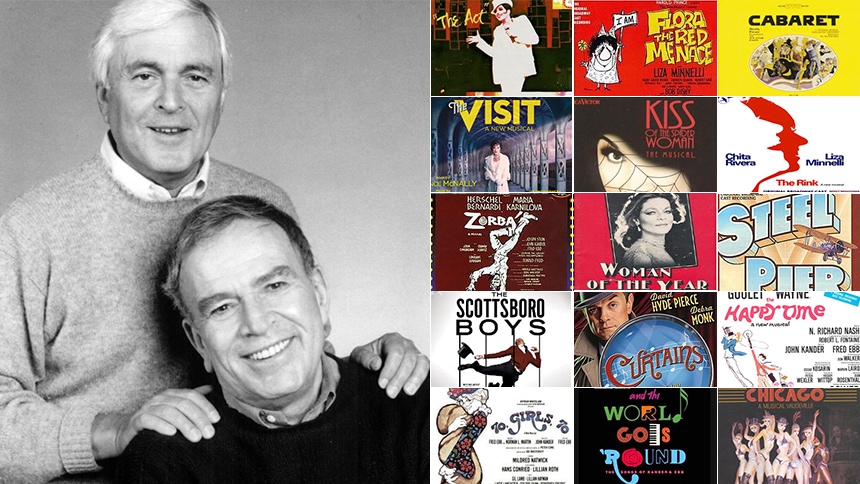
LINK:
‘Come Hear The Music Play’-A Behind-The-Scenes Look at Kander and Ebb’s Musicals by Their Former Agent Richard Seff Begins Tomorrow on DCMetroTheaterArts by Richard Seff.
*From Richard Seff’s memoirs: Supporting Player: My Life Upon the Wicked Stage.




